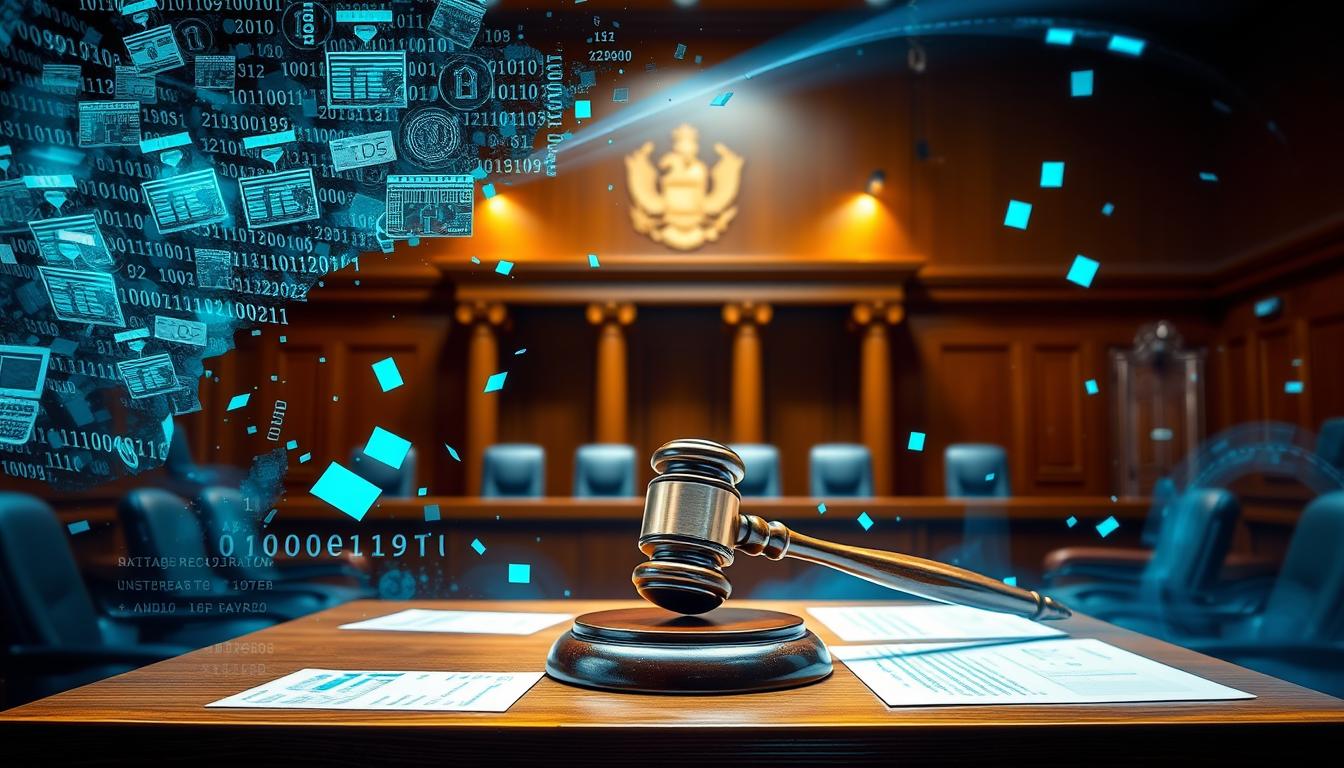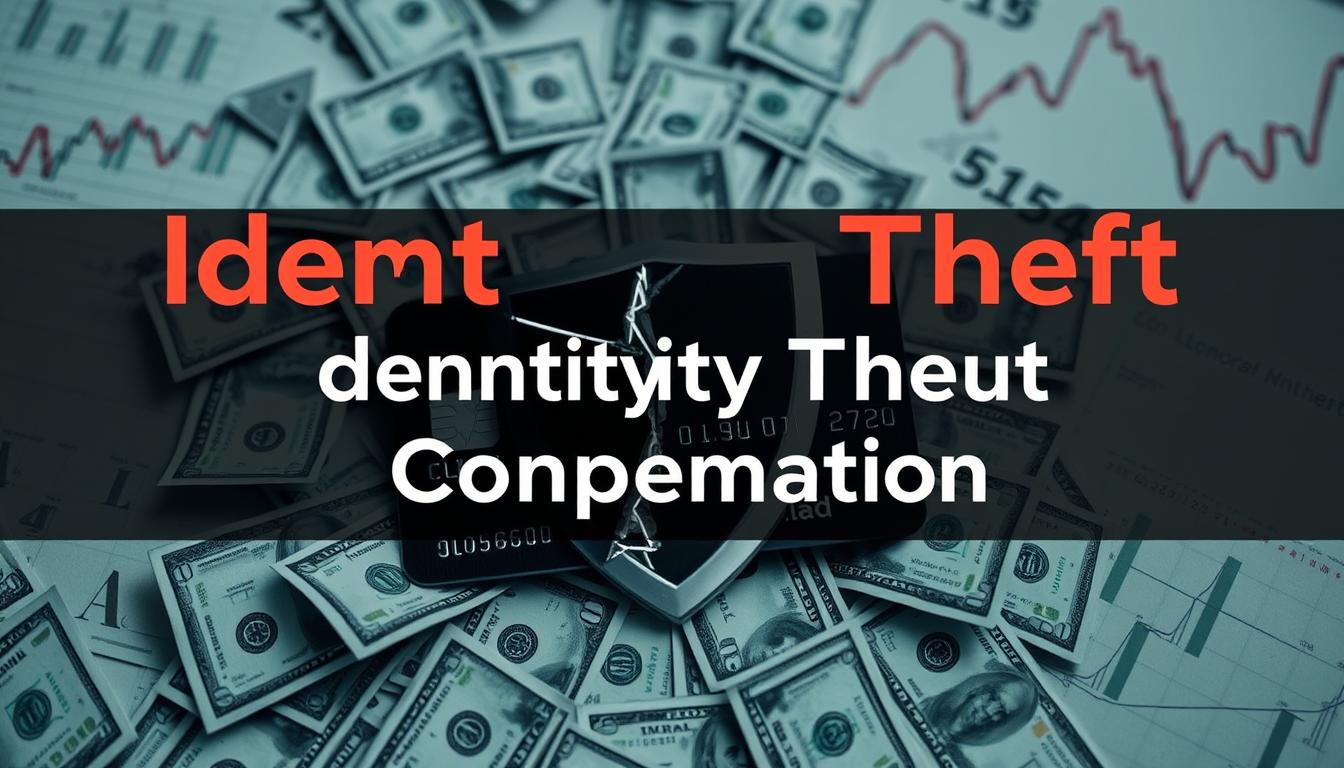The Equifax data breach has left millions of U.S. consumers vulnerable. Sensitive personal and financial information was exposed due to the credit bureau’s negligence. Many are now seeking legal action to hold Equifax accountable.
Individuals affected by this security failure are looking for ways to recover. They want compensation for the potential identity theft and financial distress they may face.
This guide explores your rights if you’ve been impacted by Equifax’s negligence. It covers corporate negligence, data breaches, and consumer protection laws. You’ll learn how to take action and seek the compensation you deserve.
Whether you’ve experienced identity theft, financial losses, or data compromise stress, help is available. This article will show you the path to justice and recovery.
Key Takeaways
- Equifax’s negligence in safeguarding customer data has left millions vulnerable to identity theft and financial harm.
- Consumers have the legal right to sue Equifax for its failure to protect personal information and data security breaches.
- Federal and state consumer protection laws provide a framework for holding Equifax accountable and seeking compensation.
- Building a compelling case against Equifax requires gathering evidence, quantifying damages, and navigating the legal process.
- Exploring class-action lawsuits and settlement options can help maximize recovery from the Equifax data breach.
Navigating the Legal Landscape: Understanding Your Rights
The Equifax data breach has major legal implications for consumers. Corporate negligence and data breaches are key issues. These factors could lead to legal action against the credit bureau.
Defining Corporate Negligence and Data Breaches
Corporate negligence occurs when a company fails to exercise reasonable care. This failure can harm customers or clients. The corporate negligence case against Equifax involves their alleged failure to protect consumer data.
Data breaches happen when sensitive personal information is accessed without permission. Equifax’s slow response to the breach raised concerns about credit bureau liability. It also questioned their adherence to consumer protection laws.
Assessing the Scope of Equifax’s Liability
Understanding Equifax’s liability is crucial for knowing your consumer rights. The breach’s scale, company response, and long-term effects all factor into the corporate negligence case.
| Metric | Equifax Data Breach |
|---|---|
| Number of Affected Individuals | 147 million |
| Types of Personal Data Exposed | Social Security numbers, birth dates, addresses, credit card numbers |
| Estimated Cost of the Breach | $1.4 billion |
| Equifax’s Response and Remediation Efforts | Criticized for delayed disclosure and inadequate consumer support |
Knowing the legal landscape helps consumers navigate their rights after the breach. It allows them to explore potential avenues for recourse following these data security failures.
Data Breach Aftermath: Identity Theft and Financial Consequences
The Equifax data breach has exposed millions of Americans to identity theft risks. Personal information in the wrong hands can lead to devastating consequences. Victims may face plummeting credit scores, drained bank accounts, and unauthorized charges.
The threat of identity theft compensation and personal information mishandling is significant. Criminals can use stolen data to open fake accounts and file false tax returns. Rebuilding credit and finances after such incidents can be extremely challenging.
| Potential Consequences of the Equifax Breach | Likelihood of Occurrence |
|---|---|
| Fraudulent credit card accounts | High |
| Unauthorized loans and mortgages | High |
| Medical identity theft | Moderate |
| Tax refund fraud | Moderate |
To reduce risks, consider signing up for credit monitoring services. These can help spot suspicious activity and alert you to potential theft. Staying alert and taking proactive steps is key to protecting your finances.

“The Equifax breach shows our personal data isn’t as safe as we thought. We must act now to shield ourselves from this massive data exposure.”
Consumer Protection Laws: Your Ally Against Credit Negligence
Consumer protection laws shield you from data security failures and credit bureau liability. These laws exist at federal and state levels. They create a framework to hold credit bureaus like Equifax accountable.
Federal and State Regulations Governing Data Security
The Gramm-Leach-Bliley Act (GLBA) is a key federal law for financial institutions. It requires credit bureaus to protect customer data with strong security measures.
The Fair Credit Reporting Act (FCRA) focuses on credit information. It ensures credit bureaus maintain accuracy, fairness, and privacy of consumer data.
Many states have their own consumer protection laws. The California Consumer Privacy Act (CCPA) is a good example. It gives Californians rights over their personal information.
Equifax’s Obligations Under Consumer Protection Statutes
Equifax must follow these federal and state rules as a major credit bureau. They must protect consumer data and report data breaches quickly.
The company also has to follow strict guidelines. These cover the accuracy and privacy of credit information they collect and share.
| Regulation | Key Requirements |
|---|---|
| Gramm-Leach-Bliley Act (GLBA) | Requires financial institutions to implement security measures to protect customer data |
| Fair Credit Reporting Act (FCRA) | Mandates credit bureaus to maintain accuracy, fairness, and privacy of consumer credit information |
| California Consumer Privacy Act (CCPA) | Grants California residents the right to know, access, and request deletion of personal information |
These consumer protection laws give you power. You can hold credit bureaus like Equifax responsible for data security failures. You can seek legal remedies for their negligence.
sue equifax for negligence: Building a Compelling Case
The Equifax data breach may have affected you. You might be thinking about suing the credit reporting agency. To win, you’ll need strong evidence and a clear picture of your losses.
Gathering Evidence of Equifax’s Failure to Safeguard Data
Proving Equifax’s negligence requires solid evidence. Look for documents showing their known security weak spots and slow response to the breach. Gather internal reports, cybersecurity audits, and whistleblower statements.
These can help show that Equifax didn’t protect consumer data well enough. Such evidence will make your case stronger.
Quantifying Damages Resulting from the Breach
Figure out how much the Equifax data breach has cost you. Include expenses from identity theft, like fraudulent charges and credit monitoring services. Don’t forget the time and money spent fixing these issues.
Consider the emotional toll and long-term effects on your finances. These factors are important when calculating your total damages.
| Damages | Quantifiable Costs |
|---|---|
| Identity Theft | $X,XXX |
| Credit Monitoring | $X,XXX |
| Time Spent Resolving Issues | $X,XXX |
| Emotional Distress | $X,XXX |
| Total Damages | $X,XXX |
A strong case against Equifax needs two key things. First, gather detailed evidence of their negligence. Second, accurately calculate all the damages you’ve suffered.

Seeking Compensation: Legal Avenues and Settlement Options
The Equifax data breach may entitle you to compensation through various legal channels. Class-action lawsuits against the credit reporting agency are a notable option. These allow affected consumers to unite and seek justice collectively.
Exploring Class-Action Lawsuits Against Equifax
Class-action lawsuits can be powerful tools against corporate data breaches. Victims can build a stronger case and potentially receive higher compensation for their losses. These suits often address identity theft compensation and costs linked to data breach lawsuits.
Equifax has also offered a settlement to eligible consumers. The Equifax settlement claims process lets individuals file for compensation. This can include free credit monitoring or monetary payments.
| Legal Option | Potential Benefits | Considerations |
|---|---|---|
| Class-Action Lawsuit |
|
|
| Equifax Settlement |
|
|
Carefully weigh your legal options before making a decision. Seek guidance from a qualified attorney to boost your chances of fair compensation. This can help you navigate the complex process and secure the best outcome.
Identity Theft Compensation: Recovering from Financial Distress
Identity theft can leave victims in financial turmoil. Fortunately, legal options and compensation exist to help restore stability. Knowing your rights and available resources is key to overcoming this challenge.
Reimbursement for out-of-pocket expenses is a primary form of compensation. This covers costs for credit restoration, legal fees, and resolving issues with financial institutions.
Victims may also receive compensation for lost wages and emotional distress. The severity of the theft determines eligibility for these damages.
Protecting your identity and credit is crucial after an incident. Enrolling in a credit monitoring service can help detect and prevent future identity theft attempts.
| Compensation Option | Description |
|---|---|
| Out-of-Pocket Expenses | Reimbursement for costs associated with restoring credit, legal fees, and other expenses incurred due to the identity theft. |
| Lost Wages | Compensation for time taken off work to resolve the identity theft issue. |
| Emotional Distress | Compensation for the mental and emotional anguish caused by the identity theft. |
Understanding compensation options helps you recover from identity theft’s financial impact. Remember, support and legal protections are available to assist you.

Equifax Settlement Claims: Navigating the Compensation Process
Were you affected by the 2017 Equifax data breach? You might be eligible for compensation through the company’s settlement offer. Understanding the terms and documenting your claim is key to maximizing your potential compensation.
Understanding the Terms of Equifax’s Settlement Offer
Equifax’s settlement includes credit monitoring services, cash payments, and reimbursement for out-of-pocket expenses. Your compensation depends on the harm you suffered, such as identity theft or financial losses.
Maximizing Your Compensation Through Proper Documentation
- Gather documentation related to the data breach, such as credit reports, bank statements, or identity theft records.
- Review claim forms and eligibility requirements carefully to submit a complete and accurate claim.
- Be ready to provide details about how the breach impacted your finances and credit history.
Follow these steps and provide necessary documentation to boost your chances of maximum compensation. The Equifax settlement claims process can be navigated successfully with the right approach.
| Compensation Option | Eligibility Criteria | Potential Payout |
|---|---|---|
| Credit Monitoring Services | All affected consumers | Up to 10 years of free credit monitoring |
| Cash Payments | Consumers who experienced identity theft or other financial harm | Up to $20,000 per person |
| Reimbursement for Out-of-Pocket Expenses | Consumers who incurred costs related to the breach | Up to $20,000 per person |
The deadline to file an Equifax settlement claim is June 2023. Don’t miss your chance to seek identity theft compensation and data breach lawsuit settlement. Act now to protect your rights.
Corporate Accountability: Setting Precedents for Data Security
The Equifax data breach has reignited discussions on corporate accountability and data security standards. This case could set legal precedents, reshaping consumer protection and data privacy in the digital age.
The core issue revolves around corporate negligence. Equifax’s inadequate protection of sensitive consumer information led to massive data security failures. Millions now face potential identity theft and financial hardship.
This breach has eroded public trust. It underscores the need for stronger consumer protection laws to hold companies accountable for data security practices.
The Equifax case might establish a new standard for corporate liability in data breaches. It could create a clear legal framework for assessing corporate negligence. This may lead to stronger data security measures across industries.
Legal precedents from this case could have far-reaching effects. They may influence how companies manage data security and how consumers seek compensation. The outcome could shape the future of data privacy and consumer rights.

Both businesses and consumer advocates are closely watching the Equifax case. The decisions made here could significantly impact how we navigate our digital world. The stakes are high for companies and individuals alike.
Credit Monitoring Services: Safeguarding Your Future
Credit monitoring services are vital tools for protecting your financial future. They offer strong defense against identity theft after the Equifax data breach. These services help you regain control and secure your credit profiles.
Evaluating the Benefits of Credit Monitoring Programs
Credit monitoring services offer many features to empower consumers. These include continuous monitoring of credit reports from major bureaus. They also provide real-time alerts for suspicious activity on your credit profile.
Many services offer identity theft insurance to cover resolution costs. They can also help dispute errors or fraud on your credit report.
- Continuous monitoring of credit reports from the three major credit bureaus
- Real-time alerts for any suspicious activity or changes to your credit profile
- Identity theft insurance to cover the costs associated with resolving identity theft issues
- Assistance in disputing errors or fraudulent activities on your credit report
These services help you stay ahead of potential identity thieves. They can reduce the financial impact of the Equifax data breach.
Choosing the Right Service for Your Needs
Many credit monitoring services are available. It’s important to evaluate your options carefully. Consider the coverage scope, service cost, and provider reputation.
Look for services with comprehensive identity theft protection. Ensure they offer assistance if a breach occurs.
Investing in credit monitoring can safeguard your financial future. It protects you from long-term effects of the Equifax breach. Stay vigilant and take action to keep your credit profile secure.
Conclusion
The Equifax data breach highlights the need for consumers to assert their rights. Suing Equifax for negligence can lead to compensation and improved data security practices. This action can drive meaningful change in the industry.
Understanding your rights under consumer protection laws is crucial. Pursuing compensation for identity theft helps regain control of your finances. Participating in Equifax settlement claims sets precedents for better corporate accountability.
Enrolling in credit monitoring services can protect your future. It helps reduce long-term risks from the Equifax data breach. Taking action against data security failures safeguards your financial and privacy rights.
Consumers can collectively push for change by standing up to personal information mishandling. This united effort can lead to stronger protections for everyone’s data. Your actions today can shape a more secure financial landscape tomorrow.

